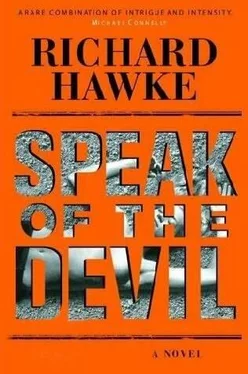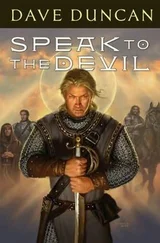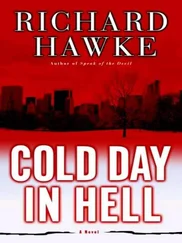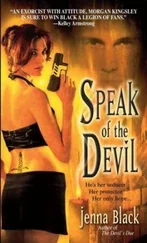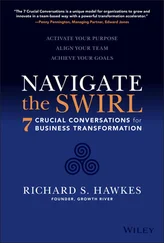“What about something stronger?”
Ramos shrugged. “The dude’s been in three different prisons. You can learn a lot in prison. Knowing Angel? Wouldn’t surprise me.”
I thanked him. He shook his head.
“If you run into Angel, man, you’re not going to be thanking me for nothing.”
I FOUND A COPY SHOP ON SEVENTH AVENUE. IT WAS RUN BY A BIRDBONED young man from the Kashmir region of India. I learned this only because there had been an explosion in Kashmir the day before, and the young man behind the counter was arguing about it with an older man when I came in. The older man was brandishing an Indian-language newspaper like a handful of thunderbolts.
I couldn’t have followed the politics of the argument even if I had wanted to, which I didn’t. I wanted five hundred business-sized cards made up while I waited, and I didn’t want to wait until the two gentlemen had found common ground on the Kashmir issue. I had my own mad bomber to think about.
“Excuse me,” I interjected in a falsely polite voice. “Customer?”
I waited in a Starbucks nearby while my cards were being printed. I thought of calling Margo but remembered that she was interviewing a pop star today for an article in Entertainment Weekly . Or Us . Or People . One of those. Mustn’t interrupt the intellectual musings of the pop star. The Starbucks was filled with pretty young women and baby strollers. I felt lecherous simply for being a man. One of the women smiled at me a trifle too long. A pair in the corner were laughing themselves to tears over God knows what. One of the babies threw up. All to the earthy aroma of caffeine and the sweet strains of Vivaldi in strings. Simply lovely.
My cards were ready. The argument over the bombing in Kashmir had subsided. I paid for my purchase, then took the subway to Fort Petersen. The train briefly came out of the tunnel at one point and revealed a gray world, a large half-empty parking lot, a Home Depot, a massive junkyard mountain and a distant hook of the harbor along with countless tractor-trailer compartments stacked up twenty high. Then the train plunged back into the tunnel, and all I saw in the window was a smoky reflection of my own face, along with the hip-hopper passed out in the seat across the aisle.
I got off the train at Culver Boulevard, the major artery running through Fort Pete. Beauty shops, nail salons, chicken shacks, clothes stores, barbershops, fish-and-chips joints, corner bodegas. I oriented myself using a bus map I’d gotten from the subway attendant, found my north and south, found the two streets Victor Ramos had offered as the boundaries of his brother’s main stomping ground. I went a block east to Murray Avenue and for the next forty minutes made a pest of myself going into business establishments and handing out the cards I’d had made up in Park Slope. Here and there were pockets of men, some older, some younger, hanging out in chairs in front of the bars and barbershops and Laundromats. I stopped and told them that I was looking for Angel Ramos, and I handed each of them a card. At the corner of Viceroy and Columbia, a teenager was selling CDs that he had laid out on a blanket. He wasn’t doing much business as far as I could see, so I made him a proposition. I gave him fifty bucks, doled out a hundred of the cards and assigned him a region. I knew he might just take my money and dump the cards, but if you doubt humanity at every turn, I figure you might as well pack it in.
I continued passing out the cards and asking after Angel Ramos. I didn’t expect anyone to cough him up, but I wanted the word to saturate his territory. I wanted to draw a reaction from him. I wanted to flush him out. My cell phone number was on the cards, along with an intentionally cryptic message:
Angel-
I died, you didn’t. So why you doing this shit?
Amigo Willy
Seemed to me like a reasonable ploy. Curiosity is like a drug. When I was twenty, I lost a pretty good friend to a policeman’s bullet. If someone were to hand me a card with a phone number and a bullshit message from my friend, I’d call.
I found the church that Victor Ramos had mentioned. Its glassless white stucco facade made it look a little like the Alamo. A sign above the door read: SWEET MUSIC METHODIST CHURCH/REV. SALLY BODINE PRESIDING. The front of the church was covered with graffiti, primarily large rounded letters I couldn’t make out. Someone had also drawn a skeleton seated atop a horizontal guitar. The skeleton was holding a paddle that it was dipping into some ripples next to the guitar. The front door of the church was boarded over, and the chipped cement steps were strewn with beer and booze bottles. As promised, a small rat was standing guard, sniffing at one of the bottles.
The attached building was also abandoned. A large sheet of tin covered the front door. I pushed on the tin and it moved easily. A stale cold air sifted from within. No doubt the way into the church was through this building. A hole in the wall somewhere, I figured. I considered going in but decided that if Angel Ramos was inside and I were to come climbing unannounced through a jagged brick hole in the wall, I wouldn’t get the chance to climb back out.
My phone went off.
“Hello?”
A voice much louder than I was ready for chewed into me. “What the fuck do you think you’re up to?”
“That depends who’s asking,” I said. “Who’s this?”
“This is Leonard Cox. What the hell are you doing?”
“I’m just trying to save the planet, one person at a time.”
“Where are you?”
“I’m standing in front of the Sweet Music Methodist Church. From what I can tell, the music died long ago.”
“Don’t move.”
“Okay.”
“And don’t go inside that building.”
“One step ahead of you on that.”
He hung up and I put my cell phone back in my pocket. I passed a minute trying to clear my head of every thought that attempted to intrude. It’s hard work. An unfortunate image of Angel Ramos bursting into the bedroom of Gabriella Montero (formerly Diaz) managed to get through, and I was working to push it back out when a police cruiser rounded the corner and screeched to a halt in front of the abandoned church. The passenger-side door opened as if on its own. I stepped over to the curb. The city’s most recent hero cop was behind the wheel.
“Get in.”
I got into the car and closed the door. Cox hit the auto-lock. I turned to face him. “What brings you to the hood?”
Cox held up something in his hand: one of my cards. “Real cute,” he said. “Who told you about Willy Padilla?”
The question surprised me. “Who told you about Willy Padilla?”
He ignored my question. “Ramos has contacted the mayor.”
It didn’t take a detective to note that Cox had also landed Angel’s last name. “When?” I asked.
“I don’t know. Sometime this morning.”
“How did he contact him?”
“E-mail.”
I glanced out the window. I didn’t imagine the information superhighway had made a turn into Sweet Music Methodist Church. “What did he say?”
“He wants ten million dollars.”
“For the convent or for himself this time?”
Cox put the car into gear and pulled away from the curb. The light at the corner was red. Cox flipped a switch, burped his siren and pulled through the intersection. “Who the hell knows? Crazy spic nigger. He also sent a picture. Deputy Mayor Byron.”
I took a sharp breath. “Dead or alive?”
“Alive. With a fucking Uzi pointed at his head.”
COX AND I AGREED THAT HE WOULD DRIVE ME OUT OF FORT PETERSEN and over to Flatbush Avenue, where I’d be able to catch a gypsy cab back into Manhattan. The subway would have been just as quick, if not quicker, but I think better with actual space to stare off into. In the subway, except for the occasional elevation, you’re literally in the dark.
Читать дальше
